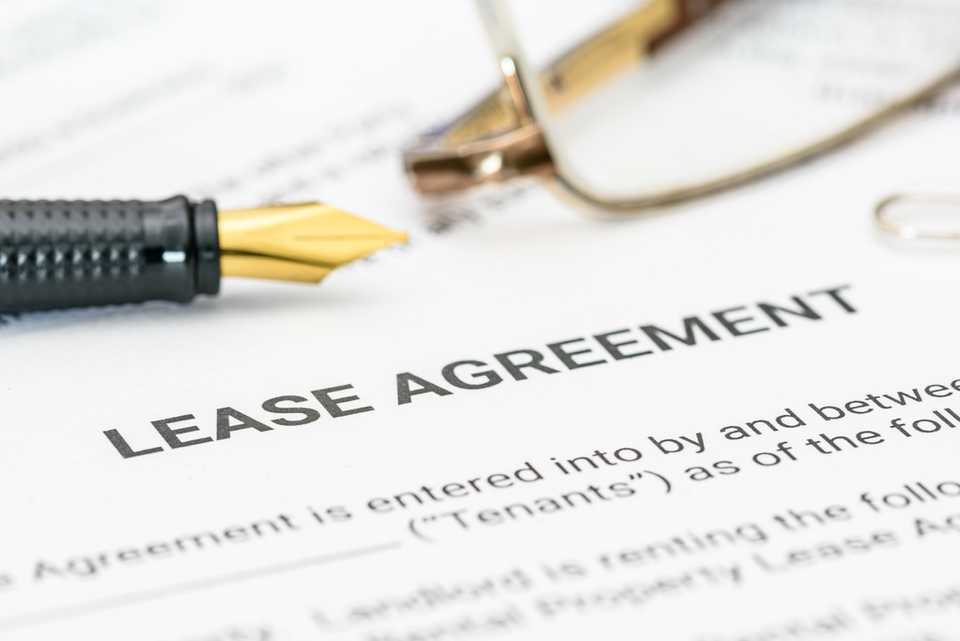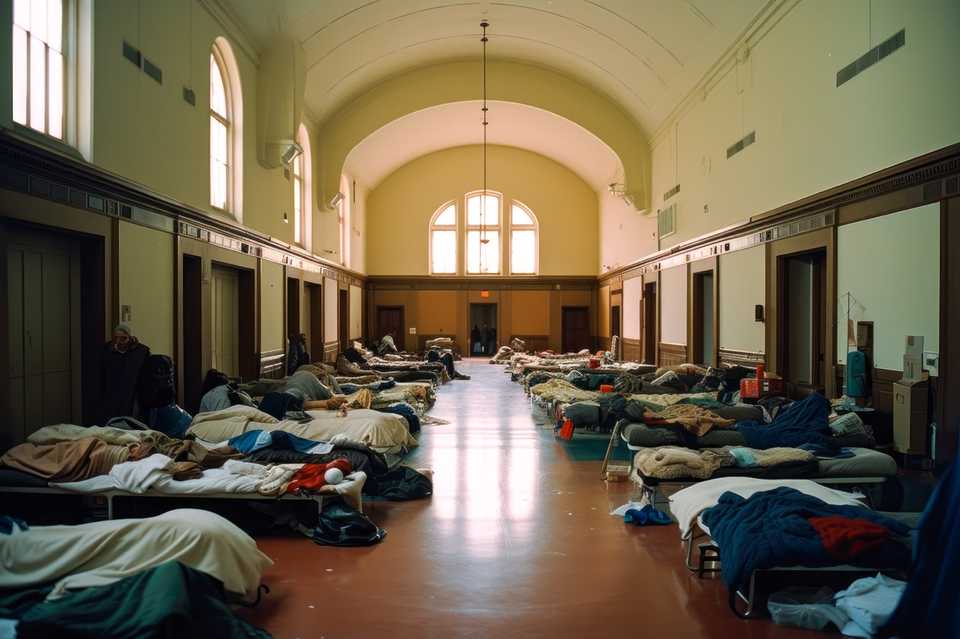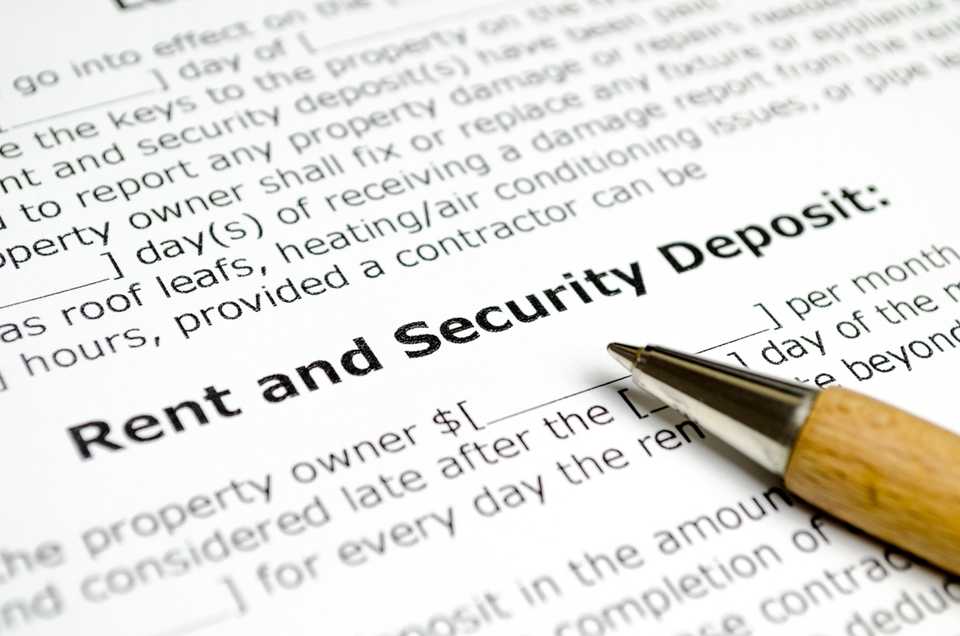Finding the right apartment or house to rent can be a challenging and time-consuming process, but once you finally discover the perfect place, it's essential to take the necessary steps to protect yourself before making any commitments.

Understanding the legal aspects of a lease agreement is crucial in ensuring that your rights are safeguarded and that there are no unwelcome surprises down the road.
In this article, JuriGo explains everything you need to know before signing a lease agreement in Ontario.
What Is a Lease Agreement?
A lease agreement, often referred to as a rental agreement, is a legally enforceable contract that establishes the terms and conditions of the rental relationship between a tenant and a landlord. In the context of Ontario, this document outlines the specific arrangements under which the tenant consents to occupy and use a property that is owned by the landlord.
The lease agreement meticulously details various critical aspects of the tenancy, including the length of the rental period, the amount of rent to be paid and the method of rent payment, as well as the regulations and obligations governing the use of the property by the tenant.
This comprehensive document serves to protect the rights and responsibilities of both parties, ensuring a clear understanding of the terms under which the rental arrangement will operate.
The Ontario Standard Lease
Since 2018, the Ontario government has mandated the use of a standardized lease template for most residential rental agreements. This standard lease is designed to simplify the process and ensure that all tenants are aware of their rights and responsibilities.
It also helps prevent the inclusion of illegal or unfair clauses in the lease. The standard lease is available in multiple languages, ensuring accessibility for all tenants.
When Is the Standard Lease Required?
In Ontario, the standard lease form is a crucial document required for most private residential tenancies, covering a broad spectrum of rental properties. This includes apartments, which are common rental units in multi-unit buildings, and condos, which are privately owned units within a larger complex.
It also applies to houses that are rented out in their entirety by a landlord, as well as secondary units, such as basement apartments or other separate living spaces within a home.
However, there are certain types of housing where the standard lease is not mandatory. These include:
- Vacation and temporary accommodations: Such as hotels, motels, resorts, and vacation homes, where the accommodation is meant for temporary or seasonal occupancy.
- Farm worker accommodations: Housing provided to workers where occupancy is contingent on continued employment on a farm.
- Non-profit housing co-operatives: Member units of non-profit housing co-operatives are exempt.

- Penal or correctional housing: Accommodations occupied by individuals for penal or correctional purposes.
- Emergency shelters: Short-term housing provided as an emergency shelter is excluded.
- Educational institution housing: Accommodations provided by educational institutions to students or staff under certain conditions, such as those without self-contained bathroom and kitchen facilities or intended for temporary occupancy.
- Employment-related housing: Accommodations tied to employment within non-residential buildings or projects.
- Shared accommodation: Housing where tenants share a bathroom or kitchen with the landlord or their immediate family.
- Business or agricultural premises: Living accommodations attached to business or agricultural premises occupied under a single lease.
- Therapeutic or rehabilitative housing: Housing provided for the purpose of rehabilitative or therapeutic services, typically for a period of no more than one year.
- Short-term respite care in care homes: Accommodations in care homes specifically for short-term respite care.
Even in situations where the standard lease is not required by law, having a clear, written agreement is still highly beneficial.
What are the essential components of a lease agreement?
A lease agreement in Ontario includes several key components that tenants should carefully review before signing. Understanding these elements will help ensure that there are no surprises later on.
Names of the parties involved:
The lease will list the names of all the tenants and the landlord. It is important that all adult tenants who will be living in the unit are listed on the lease, as this ensures that everyone is legally recognized and responsible for the rent.
Property details:
The address and description of the rental unit should be clearly stated. This includes details like the unit number, if applicable, and any other identifying information about the property.
Term of the lease
The lease should specify whether the rental term is for a fixed period (such as one year) or a month-to-month arrangement. A fixed-term lease provides stability for both the tenant and the landlord, as the terms cannot be changed until the lease expires. A month-to-month lease offers more flexibility but may also result in rent increases or termination with proper notice.
Rent and payment terms:
The lease must clearly outline the amount of rent, when it is due (typically the first of each month), and how it should be paid (by e-transfer, post-dated cheques, or direct deposit). It should also specify what is included in the rent, such as utilities, parking, and storage, and what is not included, which may involve additional costs.
Security deposit
In Ontario, landlords cannot ask for a security deposit to cover potential damages to the property. However, they can request a rent deposit equivalent to one month’s rent. This deposit is typically used as payment for the last month of the tenancy. It is important to note that this deposit cannot be used for any other purpose.

Rent increases
The lease should outline the rules regarding rent increases. In Ontario, rent increases are regulated by the provincial government and generally can only occur once every 12 months, and by an amount determined by the Ontario Rent Increase Guideline.
The guideline is typically tied to inflation rates and is announced annually. However, landlords can apply for above-guideline increases if they have made significant improvements or incurred higher operating costs.
Utilities and other costs
The lease should specify which utilities (electricity, water, heating, etc.) are included in the rent and which are the tenant’s responsibility. It is important to clarify this before signing, as utility costs can significantly impact the overall affordability of the rental unit.
Maintenance and repairs
The lease must indicate who is responsible for maintaining the property and making repairs. In Ontario, landlords are required to keep the rental unit in a good state of repair, fit for habitation, and comply with health, safety, and housing standards. However, tenants are expected to keep the unit clean and notify the landlord of any repairs that are needed.
Signatures
The lease is not valid until it is signed by both the tenant and the landlord. Each party should receive a copy of the signed lease for their records.
What Are the Rights and Responsibilities of Tenants?
Understanding tenants' rights and responsibilities in Ontario is crucial for a smooth and lawful tenancy. These are detailed in the Residential Tenancies Act (RTA).
| Tenant’s rights | Explanation |
|---|---|
| Right to a habitable home | Tenants have the right to reside in a rental unit that is safe, well maintained, and fit for habitation. Landlords are legally obligated to ensure the property meets all health, safety, and building codes, addressing any necessary repairs and maintenance promptly to comply with these regulations. |
| Right to privacy | Landlords are required to provide tenants with at least 24 hours’ written notice before entering the rental unit, except in cases of emergency. This notice must clearly state the reason for the entry, as well as the specific date and time it will take place. |
| Right to pay reasonable rent | Rent increases are regulated in Ontario, and tenants have the right to challenge an unreasonable rent increase through the Landlord and Tenant Board (LTB). |
| Right to non-discriminatory treatment | Landlords cannot discriminate against tenants or prospective tenants based on race, gender, age, religion, disability, family status, or any other protected ground under the Ontario Human Rights Code. |
| Right to a written lease | Tenants have the right to receive a copy of the signed lease within 21 days of signing it. If the landlord fails to provide the standard lease within 21 days of a tenant’s request, the tenant can withhold one month’s rent. |

| Tenant’s responsibilities | Explanation |
|---|---|
| Paying rent on time | Tenants are legally obligated to pay rent in full and on time as specified in the lease agreement. Failure to meet this obligation can lead to eviction proceedings initiated by the landlord. |
| Maintaining the property | Tenants must keep the rental unit clean and report any necessary repairs to the landlord. Tenants are also responsible for any damages caused by them or their guests. |
| Following the lease terms | Tenants must adhere to the rules and regulations set out in the lease agreement. Violating these terms could lead to fines, penalties, or eviction. |
| Providing proper notice | If a tenant wishes to move out at the end of the lease term, they must provide written notice to the landlord at least 60 days before the lease expires. For month-to-month leases, 60 days’ notice is also required. |
What Are the Rights and Responsibilities of Landlords?
Just as tenants have their rights and responsibilities, landlords have theirs as well. Understanding what landlords can and cannot do is crucial for fostering a positive landlord-tenant relationship. These responsibilities are also outlined in the RTA.
| Landlord’s rights | Explanation |
|---|---|
| Right to collect rent | Landlords have the right to collect rent on the agreed-upon date. If a tenant fails to pay, the landlord can issue a notice for non-payment and eventually proceed with an eviction order. |
| Right to entry | Landlords can enter the rental unit for specific reasons, like making repairs, conducting inspections, or showing the unit to prospective tenants. However, they must provide 24 hours' notice in advance. |
| Right to enforce lease terms | Landlords can enforce the terms of the lease and take action if the tenant violates any rules. This could include seeking eviction for serious breaches such as illegal activities or substantial damage to the property. |

| Landlord’s responsibilities | Explanation |
|---|---|
| Maintaining the property | Landlords must keep the rental unit in a state of good repair and ensure that it meets health, safety, and housing standards. This includes making necessary repairs in a timely manner. |
| Respecting tenant’s Privacy | Landlords must respect the tenant’s right to privacy and cannot enter the rental unit without proper notice or without the tenant’s consent, except in emergencies. |
| Providing a written lease | Landlords must provide a written lease that complies with the standard lease format if requested by the tenant. |
| Complying with rent control regulations | Landlords must follow the guidelines for rent increases as set by the Ontario government. They cannot increase rent more than once every 12 months without the tenant’s agreement. |
What Are Common Lease Clauses to Watch Out For?
While the standard lease provides a strong foundation for rental agreements, some landlords may attempt to include additional clauses that are not always legal or fair. Here are some common clauses to watch out for:
- Illegal deposit requirements : In Ontario, landlords can only ask for a rent deposit (equivalent to one month’s rent) and cannot demand security deposits or damage deposits. If a landlord asks for additional deposits, it is important to know that this is not permitted under the RTA.
- No pets clauses: The RTA stipulates that “no pets” clauses in residential leases are void, except in specific circumstances, such as if the pet is dangerous or causes allergic reactions to other tenants. However, landlords may refuse to rent to tenants with pets before the lease is signed.
- Unauthorized rent increases**:** Some landlords may include clauses that allow them to increase rent more frequently or by a higher amount than permitted by law. Such clauses are not enforceable, and tenants should be aware of the legal limits on rent increases.
- Responsibility for repairs**:** While tenants are responsible for keeping the unit clean and reporting any necessary repairs, clauses that shift the responsibility for major repairs or maintenance to the tenant are not permitted. Landlords must maintain the property in a state of good repair.
- Automatic lease renewal: Clauses that automatically renew the lease for another term without the tenant’s consent are not allowed. Tenants have the right to choose whether they want to renew the lease, continue on a month-to-month basis, or move out at the end of the term.
What Are the Key Steps You Should Take Before Signing a Lease?
Before signing a lease, it’s essential to follow certain steps to safeguard yourself and ensure you’re making a well-informed decision.
- Inspect the property:
Always inspect the rental unit before signing the lease. Look for any signs of damage, mould, pests, or other issues that could impact your living conditions. Check the condition of appliances, plumbing, and electrical systems. If possible, take photos or videos of the unit’s condition to serve as evidence in case any disputes arise later.
This documentation can be crucial if you need to address issues or claim your security deposit upon moving out.
Ask questions:
Don’t hesitate to ask the landlord or property manager any questions you may have about the lease, the property, or the terms of the rental agreement. Inquire about the responsibilities for maintenance, the process for reporting repairs, and any rules or restrictions that apply to the unit.
Clarifying these details before signing can prevent misunderstandings and ensure that you fully understand what is expected of you.
Review the lease thoroughly:
Take the time to read the entire lease agreement carefully, including any additional clauses or addendums. Make sure you understand and agree with all the terms, including rent amount, payment due dates, and any penalties for late payments.

Pay attention to clauses regarding termination of the lease, renewal terms, and conditions for returning your security deposit. If anything seems unclear or unfair, seek legal advice or request that the landlord revise the problematic clauses.
- Know your rights:
Familiarize yourself with your rights as a tenant under the Residential Tenancies Act (RTA) and the Ontario Human Rights Code. Understanding your rights helps you recognize any illegal or discriminatory practices and ensure you are protected from unfair treatment.
Being informed about your legal protections can empower you to advocate for yourself effectively and address any issues that may arise during your tenancy.
- Consider renter’s insurance:
Although not mandatory, renters’ insurance can provide valuable protection for your personal belongings and offer liability coverage in case of accidents or damages. This insurance can cover losses due to theft, fire, or other unforeseen events.
Considering a renter’s insurance policy before moving into your new rental unit can offer peace of mind and financial protection, ensuring that you are prepared for any potential incidents.
By taking these steps, you can enter into your lease agreement with greater confidence, knowing that you’ve covered all necessary bases to protect yourself and make a well-informed decision.
JuriGo helps you find a real estate lawyer!
Signing a lease in Ontario represents a significant legal commitment, making it crucial to be thoroughly informed before agreeing to the terms of a rental agreement. To ensure that your rights are fully protected and that you are making well-informed decisions, consulting a real estate lawyer is highly advisable.
A real estate lawyer can help you understand the key components of a lease, clarify your rights and responsibilities, and address any concerns about the lease agreement. By working with a lawyer, you can gain a clearer understanding of the legal implications of the lease terms and ensure that all clauses are fair and in compliance with Ontario’s rental laws.
This lawyer guidance can help you avoid potential pitfalls and disputes that could arise during your tenancy. By understanding the lease’s key components, knowing your rights and responsibilities, and consulting a real estate lawyer, you can approach your rental agreement with confidence!

JuriGo is a simple, fast and free way to find a real estate lawyer! All you have to do is fill in our request form and tell us about your situation.
Following your request, we will quickly put you in touch with a lawyer near you. There is no obligation on your part!